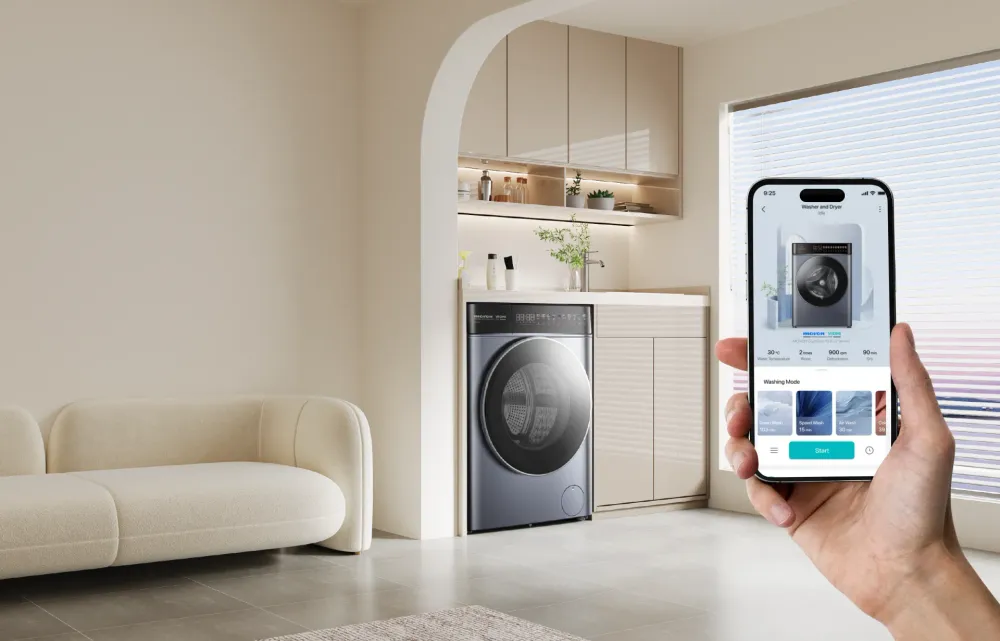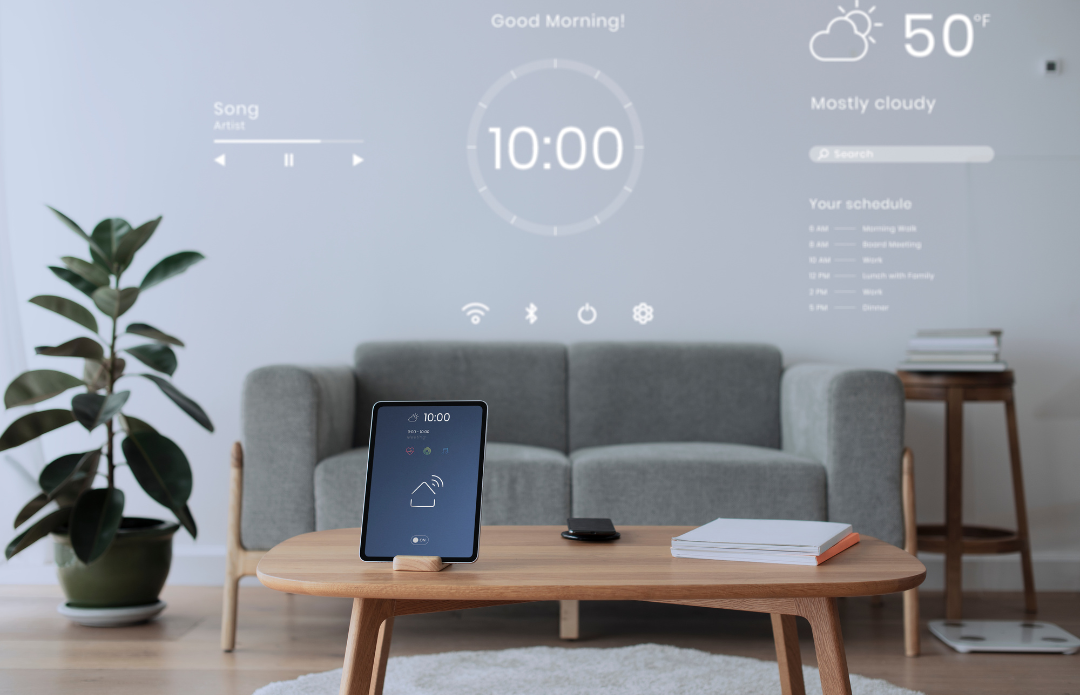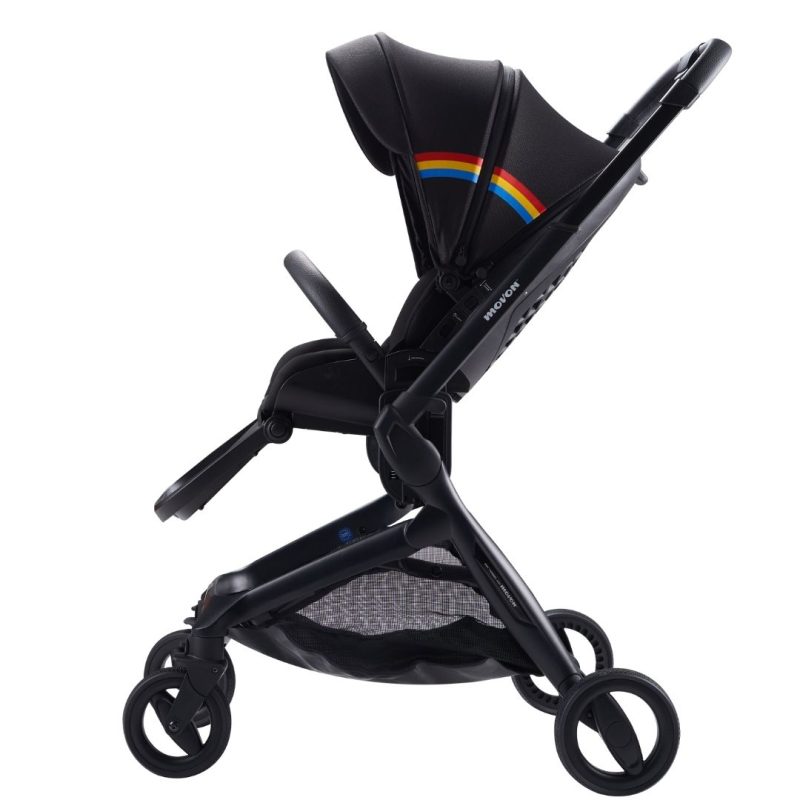Why You Should Get Smart Home Appliances in Malaysia
Smart VS Traditional Home Appliances: A Comprehensive Comparison
In today’s increasingly connected and technology-driven world, smart homes are rapidly becoming the norm offering a range of conveniences over traditional houses. Enhancing daily life through innovations that increase comfort, security, and energy efficiency. Understanding the differences between smart and traditional home appliances can help homeowners make informed decisions such as a traditional or a smart refrigerator based on your budget.
1. Comfort and Convenience
Let’s understand the advantages of a washer dryer combo becoming the new norm.
Smart Appliances:
- Designed to offer maximum comfort and convenience, allowing control of smart washer dryer, smart refrigerator, smart locks, and any other smart home appliances via mobile phone.
- Remotely control your devices while you are away from home. Some home appliances have AI functions to assist you with your home appliances.
- Allow for automated or scheduled routines, such as “detergent control” or “AI Dispenser” on your smart washer dryer scenarios that adjust multiple settings at once
Traditional Appliances:
- Require manual actions to manage home aspects.
- Lack of control and automation features, making adjustments less efficient.
- Depend on physical interaction, limiting customisation and ease of use.
2. Advanced Security
Smart Appliances:
- Smart homes appliances are equipped with advanced safety features such as child lock systems in washing machines or refrigerators.
- Allow homeowners to monitor their home remotely and receive instant alerts in case of suspicious activity.
- An advanced lock system where break-ins are impossible through picklocking.
Traditional Appliances:
- Limited to conventional security measures such as manual locks and alarms.
- Lack of remote monitoring and real-time alert systems.
- Depend on human intervention for threat detection and response.
3. Personalised Automation
Smart Appliances:
- Enable users to program specific scenarios such as temperature adjustments on your smart refrigerator without manual input.
- Provide seamless daily routines with minimal effort from the homeowner.
- Allow easy customisation to match individual preferences and schedules.
- Customised laundry settings to save time and tailor it to your personal preference in smart washing machines.
Traditional Appliances:
- Require manual execution of each action, offering no automation.
- Do not integrate with other household devices to create customised experiences.
- Lack dynamic adjustments to suit changing user needs.

4. Integration and Connectivity
Smart Appliances:
- Offer seamless integration with other smart home appliances, creating an interconnected ecosystem through a mobile application.
- Enable centralised control of various household functions, enhancing user experience and efficiency.
- Allow compatibility with third-party smart devices, ensuring flexibility and expandability.
Traditional Appliances:
- Function independently with no interconnectivity between devices.
- Require separate control mechanisms for each appliance which makes operation more cumbersome.
5. Wireless Solutions for Easy Installation
Smart Appliances:
- Wireless technology enables smart home transformation without the need for construction work.
- Installation of automation systems is simple and non-invasive, allowing integration into any home at any time.
Traditional Appliances:
- Often require extensive wiring and renovations for major upgrades.
- Lack of easy adaptability to evolving technological advancements.
- Do not provide future-proof solutions for home modernisation.
Conclusion
Smart homes appliances represent a significant step forward compared to traditional houses offering a unique combination of comfort, energy efficiency, security, and automation. Thanks to these innovations becoming increasingly accessible, transforming our vision of home and improving our daily lives. The choice between smart and traditional appliances depends on individual preferences, budget, and lifestyle needs. Traditional appliances provide reliability, affordability, and ease of use without the complexities of digital connectivity. By considering these factors, homeowners can make an informed decision on which type of appliance best suits their daily routines and long-term requirements. While smart home appliances enhance convenience at a higher cost, they are becoming increasingly popular. Want your life to be easier? Remember that at MOVON, we offer a range of smart home appliances to upgrade your home!


